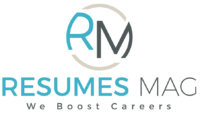Choosing your best career path requires an action plan. By the time you’re ready to write your action plan, you should have a clear idea of which profession you want to pursue. If you’re still contemplating what your future career is going to be, then you need to take a step back and assess your goals and interests.
What do you want to accomplish? Where do you see yourself in the next five years? Ask yourself these types of questions. Conduct a comprehensive self-evaluation of your dreams, hopes, and possible career choices. Based on the answers you come up with, choose the career which best suits you. Only then can you write a suitable action plan which can bring you closer to your career goals.
What is an Action Plan?
An action plan is like a step-by-step guide for achieving your objective. In this case, your objective is to get the career of your dreams. Okay, so which steps do you need to take to make your dream career a reality? Think about the education, training, internships, research, referrals, and extracurricular activities you need for this career.
No matter which career path you select, you can bet that it’ll be challenging and highly competitive. There is an increasing number of people searching for the same type of careers every day. Since only a limited number of career positions are available, you must have a resume that outperforms everyone else’s resume. That is the only way an employer will consider you above other competitors.
Remember, an action plan helps you organize the things that you need to do to create an impressive and competitive resume for yourself. It is a road map that must be followed from the beginning to the end.
The Steps of an Action Plan
A lot of career consultants have their own strategies for writing an action plan. Below are the basic steps for writing one. It doesn’t matter which industry or field your career choice is in. These steps apply to everyone looking to work toward their career goals.
1) Research
Never make any assumptions about your career path. If you want to be a doctor, lawyer, astronaut, chemist, racecar driver, or any other fascinating title, then you need to do your homework. Since you have access to a computer with an internet connection, use this technology to research your chosen profession and see what the qualifications are for getting hired. Write down the requirements for education, job experience, training, age, gender, preferences, and so on. You’re basically creating the template for your career path.
2) Re-evaluating Your Chosen Career
Before you go through the steps of pursuing the education and training needed for a specific career, you must re-evaluate your choice one more time. Now that you’ve researched the steps necessary to reach that career, what do you think? Are those steps achievable for you? Sometimes when people see everything they need to do, it makes them rethink how badly they really want that career.
For example, it is easy to dream of being an astronaut. Who wouldn’t want to go up into outer space? However, you must have an impressive educational background in engineering, mathematics, physical science, biological science, and computer science. On top of that, you must have professional experience flying a jet aircraft.
When you look at all these requirements laid out, they might turn someone away from wanting to be an astronaut. You’ll know if you’ve chosen the right profession because you won’t get intimidated by the requirements needed to succeed. Sure, it’ll be hard work, but that is to be expected.
3) Set Short-Term Goals
Short-term goals are tasks that you wish to achieve in one year or less. Making a list of short-term goals is important because it helps ensure that you won’t procrastinate on the tasks you need to complete. As you start achieving your goals quickly, it’ll motivate you not to give up.
Here are some examples of short-term goals:
- Enrolling in college and starting my first semester.
- Applying and getting hired for a job that I need on my resume.
- Move to a new town or city.
Short-term goals basically represent smaller actions or activities that you need to undertake. The great thing is they’re easier to accomplish. This will make you feel better as you achieve them.
4) Set Long-Term Goals
Long-term goals are tasks that you wish to achieve within the next 1 to 5 years. Making a list of long-term goals gives you some perspective of where you’re going. All the short-term goals that you create should help you accomplish your long-term goals. It is your long-term goal(s) that’ll get you closer to your career.
Here are some examples of long-term goals:
- Graduate from college and receiving a bachelor’s degree or master’s degree.
- Gain the number of years of job experience needed for my career.
- Get hired for my dream career.
Long-term goals cannot be achieved quickly. After all, you can’t just go out tomorrow and get a bachelor’s degree or amass years of job experience. These are all goals that require time and effort to achieve. This is what makes them the most important goals because fewer people will achieve them.
5) Possible Obstacles
Do you believe in the chaos theory? It basically states that unexpected things can happen in life, which is out of your control. You could follow your action plan to the letter by working toward your education and job goals. Then, suddenly, something could happen in your life that slows you down or takes you off your career path.
Maybe you or a family member gets sick. Perhaps you lose your job and cannot afford to pay your bills anymore. It is easy for personal problems to interfere with your action plan. So, you need to make a list of the possible obstacles which may come up in your life and then have a backup plan for overcoming them. That way, they don’t take you by surprise at the worst possible time.
Conclusion
Now you should have a basic understanding of how to write an action plan for choosing your best career path. The important word to remember here is “action.” No matter which career path you pursue, action must always be taken. Otherwise, you’ll remain stagnant and end up working a job that you hate for the rest of your life. Therefore, keep your action plan by your side wherever you go. Do what it says and never give up.



0 thoughts on “Choosing Your Best Career Path: Action Plan”